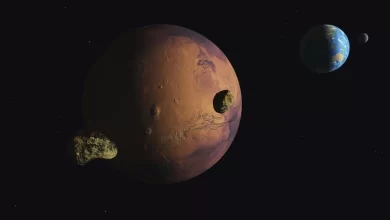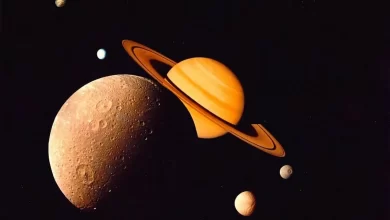Time is an abstract yet fundamental concept that governs the progression of events and the order of existence. It is a continuous, irreversible flow that divides our lives into past, present, and future. Time’s passage is marked by various units like seconds, minutes, hours, and years, providing a means to measure and quantify the duration of events and intervals. Time has profound implications in every aspect of our lives, influencing our schedules, memories, and aspirations. It is a resource we constantly seek to manage, often wishing for more of it. Time’s significance extends beyond practicality, as it prompts profound philosophical and existential questions about the nature of existence and our place within it.
- Universal Constant: Time is considered a universal constant, meaning it progresses at the same rate everywhere in the universe, regardless of conditions.
- Einstein’s Theory of Relativity: Albert Einstein’s theory of relativity revolutionized our understanding of time. According to the theory, time is relative and can pass at different rates depending on the relative motion of objects and the strength of gravity.
- Time Zones: Time zones were introduced in the late 19th century to standardize timekeeping across regions. Greenwich Mean Time (GMT) at the Prime Meridian in London serves as the reference point for time zones worldwide
- Leap Seconds: To keep atomic time in sync with Earth’s rotation, leap seconds are occasionally added or subtracted. These adjustments prevent discrepancies between atomic time and astronomical time.
- Atomic Clocks: The most accurate timekeeping devices are atomic clocks, which use vibrations of atoms, often cesium or rubidium, to measure time with incredible precision.
- Daylight Saving Time: Many countries adjust their clocks forward one hour in the spring and back one hour in the fall to make better use of natural daylight during the longer days of summer.
- Time Dilation in Space: Due to the effects of general relativity, astronauts on the International Space Station experience time passing slightly slower than on Earth. This phenomenon is known as “time dilation.”
- The Speed of Light: The speed of light in a vacuum, approximately 299,792,458 meters per second (or about 186,282 miles per second), plays a fundamental role in our understanding of the universe and how we measure astronomical distances.
- Time Travel: Time travel is a popular concept in science fiction, but it remains theoretical. Various theories in physics, including wormholes and closed time-like curves, explore the possibility of time travel.
- Time in Quantum Physics: In the realm of quantum physics, time can behave differently. Concepts like quantum entanglement challenge our understanding of cause and effect, blurring the lines of when events occur.
- Perception of Time: Time can be perceived differently by individuals. It often seems to pass more quickly when we are engaged in activities we enjoy and more slowly when we are bored or anxious.
- Time in Space Exploration: Precise timekeeping is crucial for space exploration. NASA uses atomic clocks on spacecraft to accurately calculate navigation and communication signals.
- Historical Calendars: Throughout history, various calendars have been used to measure time, such as the Mayan calendar, the Islamic calendar, Hindu Calendar and the Roman calendar.
- Geological Time: Geological time spans millions of years and is divided into eras, periods, and epochs to categorize the Earth’s history and the evolution of life.
- Time Capsules: Time capsules are containers filled with items or information from a specific era and buried or otherwise preserved for future generations to discover.
- Time’s Arrow: Time has a direction, often referred to as the “arrow of time.” It flows from the past to the present and into the future, following a one-way progression.
- Time in Literature: Time has been a recurrent theme in literature and poetry, inspiring famous works like H.G. Wells’ “The Time Machine” and Marcel Proust’s “In Search of Lost Time.”
- Time’s Effect on Aging: The concept of time is closely linked to the aging process. The theory of time dilation suggests that the faster an object moves or the closer it is to a massive body (like Earth), the slower time passes for it relative to other objects.
- Time Perception Variability: Psychological studies have shown that time perception can vary depending on factors such as age, culture, and emotional state. Time often seems to pass more quickly as we age.
- Time in Music: Musicians use time signatures and tempo to control the rhythm and pacing of music. Concepts like “timing” and “timing is everything” highlight the importance of precise timing in musical performances.
- Time Capsule on Mars: NASA’s Mars rover, Curiosity, carries a small plaque that serves as a kind of “time capsule” with messages and symbols representing Earth.
- Time Crystals: Time crystals are hypothetical phases of matter that have been proposed as a way to break the symmetry of time, akin to the way crystals break spatial symmetry. They are still a subject of ongoing scientific research.
- Time Travel Paradoxes: The concept of time travel raises paradoxes like the “grandfather paradox,” where traveling to the past could potentially alter events in a way that prevents one’s own existence.
- Timekeeping in Ancient Civilizations: Ancient civilizations, including the Egyptians and Babylonians, developed early forms of timekeeping devices such as sundials and water clocks.
- Time in Space Exploration: Precise synchronization of time is crucial for satellite navigation systems like GPS, where variations in timekeeping could lead to significant errors in location calculations.
- Time Zones in Antarctica: Antarctica has several time zones due to its vast size and international research stations. Some stations use the time zone of their home country, while others use the time zone of a nearby research station.
- Time and Economics: In economics, the concept of “time value of money” recognizes that a sum of money today is worth more than the same sum in the future, accounting for factors like inflation and opportunity cost.
- Time’s Role in Evolution: Time is a fundamental factor in the process of biological evolution, shaping the development and adaptation of species over millions of years.
- Timekeeping Records: Accurate timekeeping records are maintained by organizations like the International Bureau of Weights and Measures (BIPM) and the International Earth Rotation and Reference Systems Service (IERS) to ensure global time synchronization.





